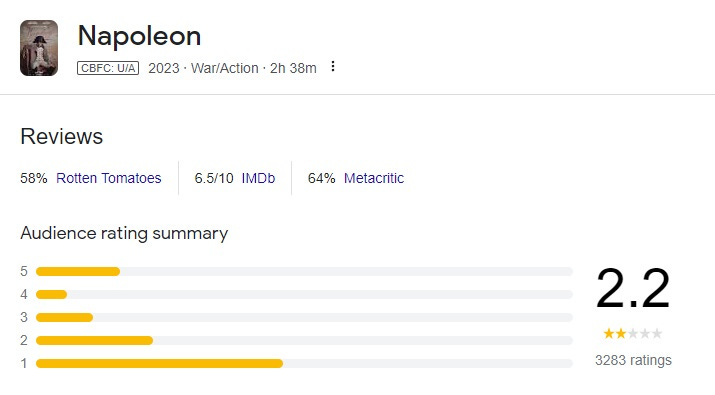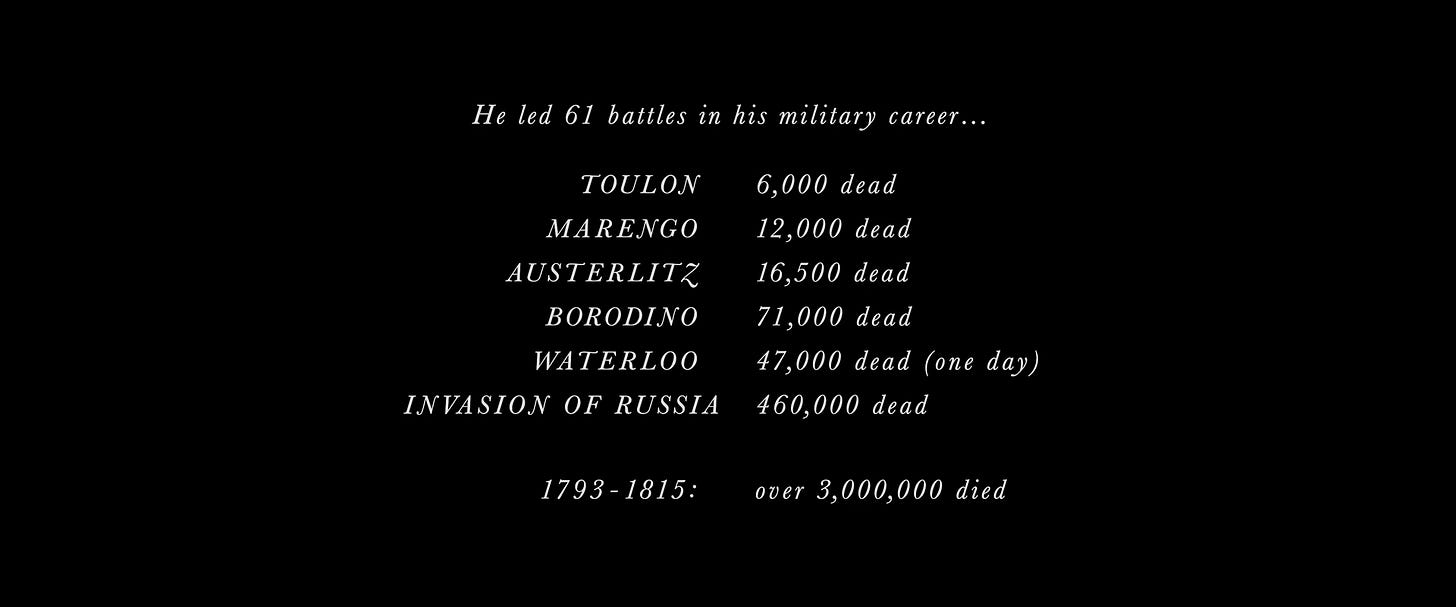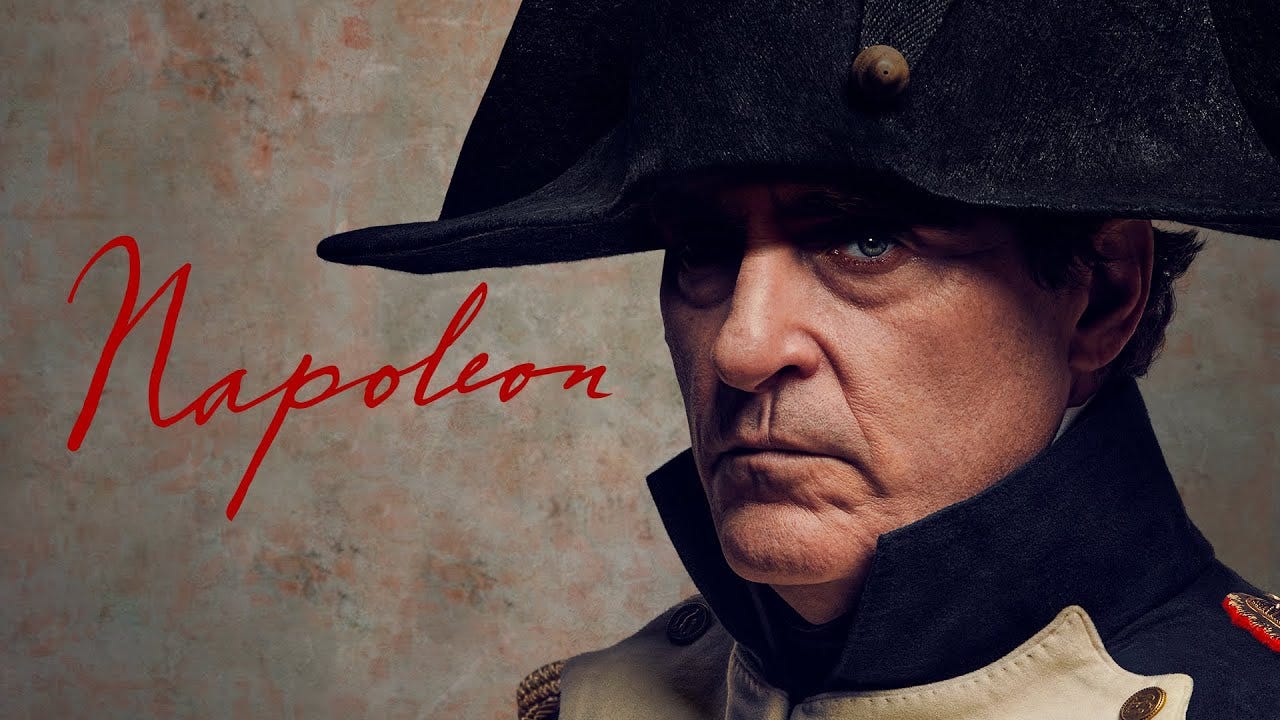The trailer created a feeling in me to watch this film. There were other reasons of course, like Joaquin Phoenix and Ridley Scott.
I had only a fading memory of Napoleon from my early school history classes. So before watching this movie, I Googled just to regain some knowledge and then saw a hyperlink to the Battle of Waterloo. It connected a few things and I recollected some things.
This film got a lot of negative reviews from critics, historians, and regular viewers after its release. Some complained about Joaquin’s acting while some pointed out the lack of storyline. One thing was clear, this movie is not everyone’s cup of tea.
It’s a slow burner, but it burns!
I tried to watch this with no judgments or expectations. Although I have a complaint about publicly available movie reviews and ratings. Not every movie and TV series is made for everyone. So a single global rating is not valid anymore. And most of the initial reviews feel so fake and sometimes out of context these days. Because reviews are a type of YouTube content these days. So there is a change in the format of “movie reviews”.
There should be an indicator based on our ratings. Google Maps introduced a similar feature a few months back for restaurants. Most of the time it matched my liking. But now it's not there. What happened? 🤔
I enjoyed my time watching this film. I felt a completely new experience.
Most of the time I close immediately if the movie is not interesting. Sometimes I complete a film in multiple sessions like within days or even weeks. This one I finished in one stretch even though I had some health issues. So I’m sure I enjoyed my time spent on this film.
*** SPOILERS ***
The film starts by stating this preface.
People are driven by misery to revolution... and brought back by revolution to misery.
The French have become disillusioned by food shortages & widespread economic depression.
Anti-Royalists would soon send King Louis XVI & 11,000 of his supporters to a violent end...and then set their sights on the last Queen of France, Marie Antoinette.
Meanwhile, an ambitious Corsican gunnery officer named Napoleon Bonaparte seeks a promotion...
From there the story begins by showing the execution of the last Queen of France, Marie Antoinette, it is important to understand this subplot. It was performed and captured in its absolute clarity, like showing her frightened yet courageous facial expressions and glimpsing the face of the executioner and his performance after the guillotine! A great masterpiece song ( Le "ça ira") by Édith Piaf sealed this scene as one of the best opening sequences!
Napoleon Bonaparte and Joséphine de Beauharnais
The central point of the film is the relationship with Napoleon’s wife Joséphine. Their passionate letters during his military campaigns were the voice-over in most of the transitions. A complicated relationship I’d say.
But from the movie’s point of view, Napoleon was deeply emotionally attached to Joséphine. You can see this in throughout this film even after her death.
At the 33 minutes of this film, you can see a few minutes of The Battle of the Pyramids in 1798, portrayed in a way showing his fascination with Egypt and its ancient civilization.

Coup d'état and the coronation of the emperor
Another marvelous scene was these two. Captured in realistically. The coup and afterward scenes were portrayed without any heroism. You can see him running, falling, frightened, and even struggling to breathe. However, his military power helped him to regain control and was a significant factor (along with other events and circumstances) that led to Napoleon’s coronation as Emperor of France in 1804.
One important thing to notice here is that Napoleon took the unusual step of crowning himself Emperor of France. Showcasing his absolute power, and control, and creating an image of strength and independence.
You can also see an artist recreating the scene on a canvas in a fast-mannered phase, that really got my attention. The director included this specific scene showing the importance and reality of old paintings.
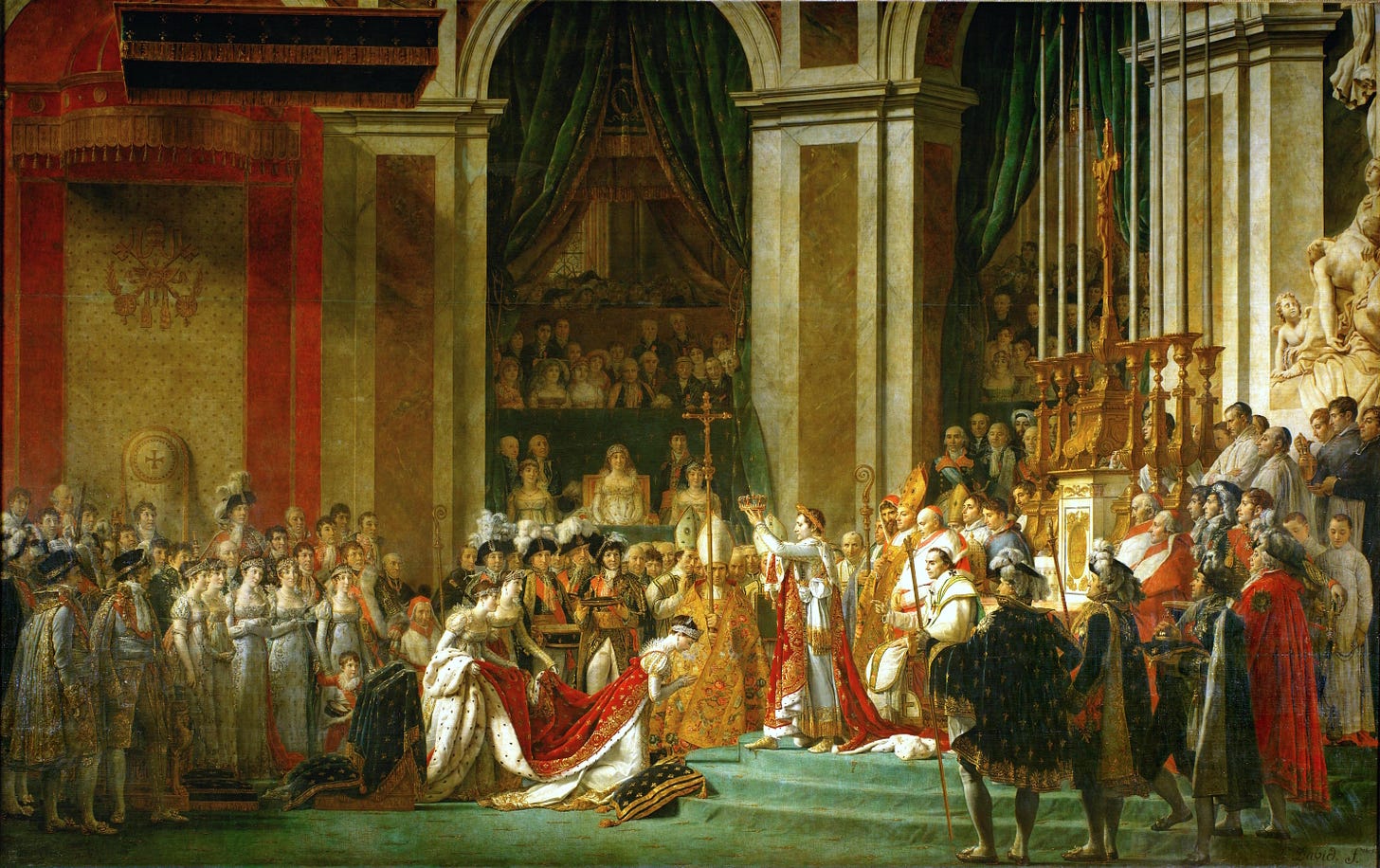
There are a few battles1 shown in this film and my favorite one is Battle of Austerlitz.
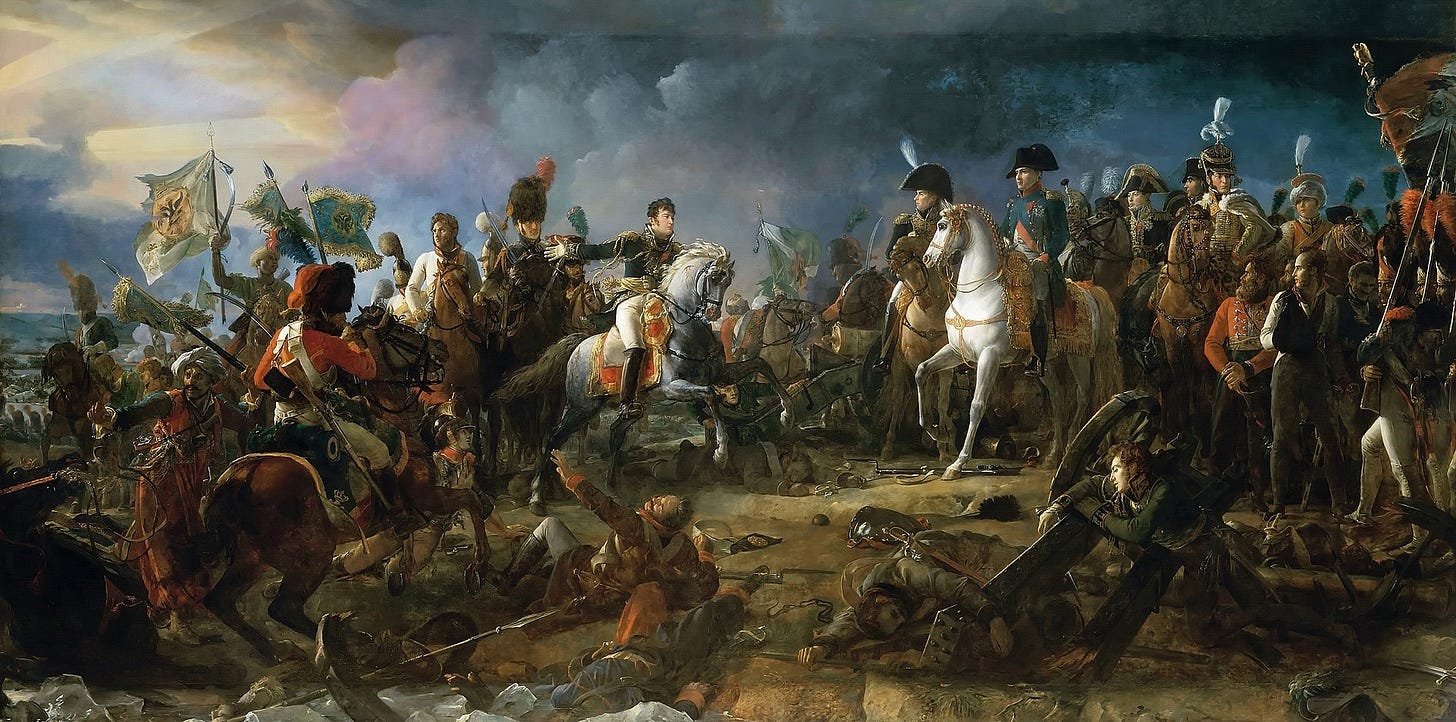
I think at least one battle in Game of Thrones was inspired by this one. This whole battle scene was spectacular!
The divorce and heir
Even though it was a passionate relationship, Joséphine was unable to conceive an heir. Eventually that led to their divorce. I think the decision is mostly because of the political pressure. It is clear in some scenes and letters.
We can see Napoleon’s mother in between scenes and some mentions. I think she was an influencer in his life and career.
He then married an Austrian princess from a royal family to secure an heir and his political position. This relationship is not much covered in this film.
We can see Joséphine holding the baby and saying “Oh, sweet child. One day, you will understand what I have sacrificed for you.”
The invasion of Russia
My dear Joséphine, I'm sad today. Tsar Alexander has turned against me and forced me to invade Russia.
Showing the major turning point in Napoleon's warfare. Russians burnt Moscow to get rid of the French and his decision to pursue the retreating Russian army ultimately contributed to his downfall. You can hear the voice-over of the letters in this scene.
My friend, Joséphine.
"Friend." It is strange to write that word to you. You have always been so much more.
Despite careful organization, there have been breakdowns in supply. We're suffering sickness, desertion and famine.
Joséphine. Fortune has abandoned me.
I know that it is what fate has for me. Your words rattle in my head. I am nothing without you.
All this led to his exile and he started to miss Joséphine more. So he's returning and marching towards Paris also regaining a few of his old military. This led to The Battle of Waterloo.
This is the point where he knows about Joséphine’s death.
The Battle of Waterloo
This battle was also portrayed in its capacity. This scene felt more like an emotional approach to Napoleon. Showing his vulnerability and weakness.
And then “The arrival of the Prussians on the second day turned the tide. Their fresh forces attacked the French flank, leading to confusion and ultimately, Napoleon's defeat.”
This scene exactly feels like The Battle of the Bastards from the Game of Thrones, don’t you think? Clever adaptation I’d say! I still remember seeing that episode and goosebumps.
You can see Napoleon all alone and frightened after this arrival.
Even though he surrendered, The Battle of Waterloo is still known for Napoleon and that reflects his presence in the 19th century.
He was then permanently exiled to the island of Saint Helena where he spent six years and it ended with his death (5 May 1821).
The movie portrays these moments with Joséphine’s voice-over for a dramatic effect and rejoining her.
In the end, the director shows insights (total deaths) in his military career as follows;
As the ending denotes, this movie is mostly about the relationship between Joséphine and Napoleon. War and other things are just a background for the storyline.
Like I said in the beginning, it was a complicated relationship and both characters have their flaws. It is more like a biopicture about France's most famous military leader.
At least that’s how I felt.
Good direction from Ridley Scott. Joaquin Phoenix and Vanessa Kirby performed well and as their characters demanded. I really liked the color grading, and overall location and graphics.
The Siege of Toulon: 1793
The Battle of the Pyramids: 1798
The Battle of Austerlitz: 1805
The Battle of Borodino: 1812 (Part of invasion of Russia)
The Battle of Waterloo: 1815


